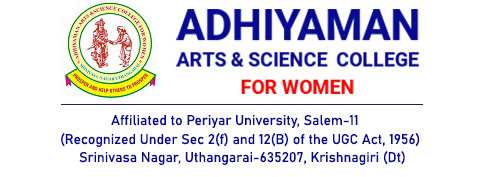Iowa Drug Testing Laws: What You Need to Know
As an academic institution, Adhiyaman Arts & Science College for Women values the importance of providing students with educational tools that allow them to make informed decisions about their future careers. When it comes to understanding law and its vast potential applications in the real-world, there can be direct and indirect benefits to expanding academic learning beyond the basic limits of textbooks and lectures. One important set of laws to consider are drug testing laws, which will have obvious relevance to individuals who work in health fields such as nursing and pharmaceuticals, but may also have some indirect relevance to those entering legal careers and business occupations.
Iowa drug testing laws set out some basic parameters for when businesses and organizations may legally conduct drug tests of employees, prospective employees, and other individuals. For example, an organization may be prohibited by law from requiring a drug test until after an individual has received a conditional offer of employment. There are also rules regarding who has legal access to a drug test, how much an individual may be charged for a copy of their own results, and when they must be informed that they are subject to a drug test. In the state of Iowa, there are also various different regulations that apply depending on the type of organization performing the drug testing. Employers are subject to certain obligations. Businesses that manufacture and sell alcohol are governed by an entirely separate set of laws.
Perhaps the most relevant drug testing laws for students to understand are those that pertain to employers in the medical and pharmaceutical industries. Any business that distributes illegal drugs or sells alcohol must also comply with certain regulations regarding their employees and drug testing. Employees of such companies are generally prohibited from consuming drugs or alcohol during working hours, however, there are still certain conditions when they may be required to take a drug test, including after any accident or injury on the job. Rules for testing after an accident vary depending upon the employer and nature of the workplace, although those in the transportation or heavy machinery industries are logically held to higher standards. There are also certain requirements for maintaining and handling medical records, which help to maintain the confidentiality of employees’ drug tests and can be vital if someone is injured on the job.
How these laws function can be a fascinating topic of discussion for students seeking to enter any of these fields, particularly those interested in the relationship between drug testing, healthcare, and employment privacy laws. Comparing the equivalent laws in other countries, such as India, can also help to demonstrate how each country’s values may influence the parameters and applications of its laws. For example, comprehensive Iowa drug testing regulations are considerably more cautious than in many developing countries in light of the serious public health issues presented, such as the ongoing HIV/AIDS crisis in sub-Saharan Africa. However, Indian laws concerning drug testing and employee rights can sometimes be quite different from those of the United States, such as the expectations for confidentiality, which may be somewhat laxer in many states. With the Indian economy becoming increasingly reliant on technological developments and more skilled labor, it is important for its workers to be informed of their rights and opportunities, before a professional environment is entered. Perhaps as a result of the growing influence of the United States on the Indian economy, Indian laws are gradually beginning to shift to mirror those of the U.S. and other developed countries in this area.
Beyond drug testing, there are many other ways that ethical considerations of health-related issues can be worked into many different fields, including law and business, creating a more well-rounded workforce. To this end, students might wonder how the law might be used in the future to promote better public health. For example, ethical regulations may one day require companies to conduct randomized drug testing on their employees. Students who are interested in technology and health could also make valuable contributions to developing new technologies that help others in seeking treatment and coping with their conditions and ailments in some way.






